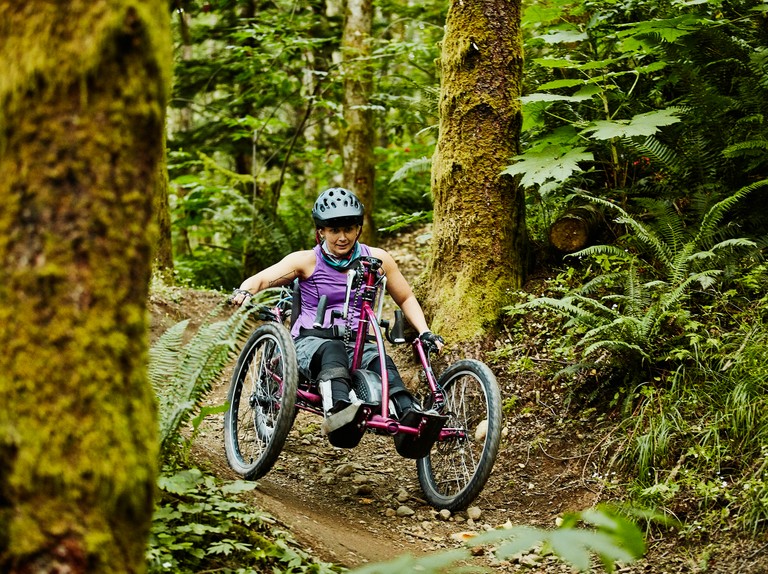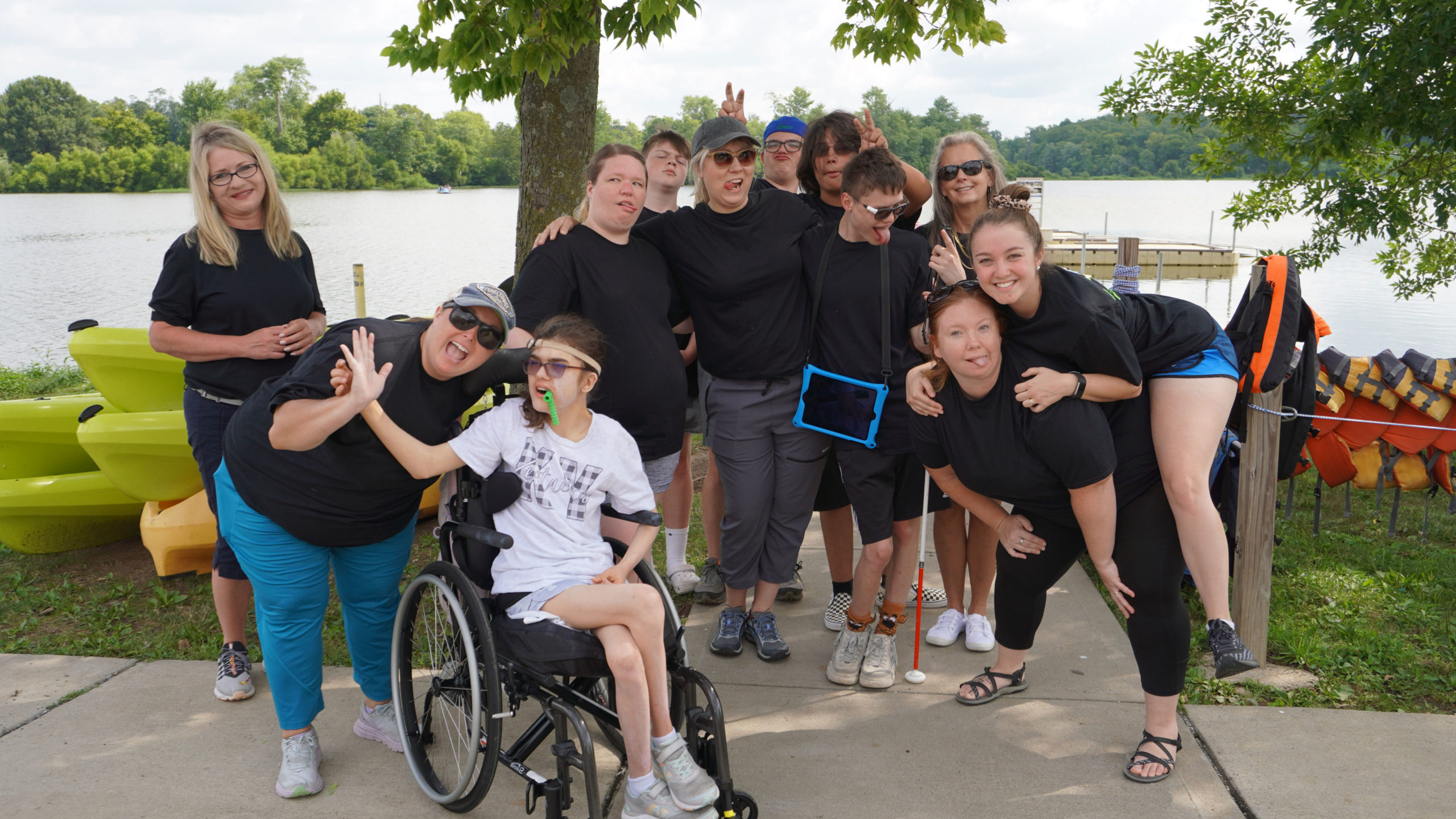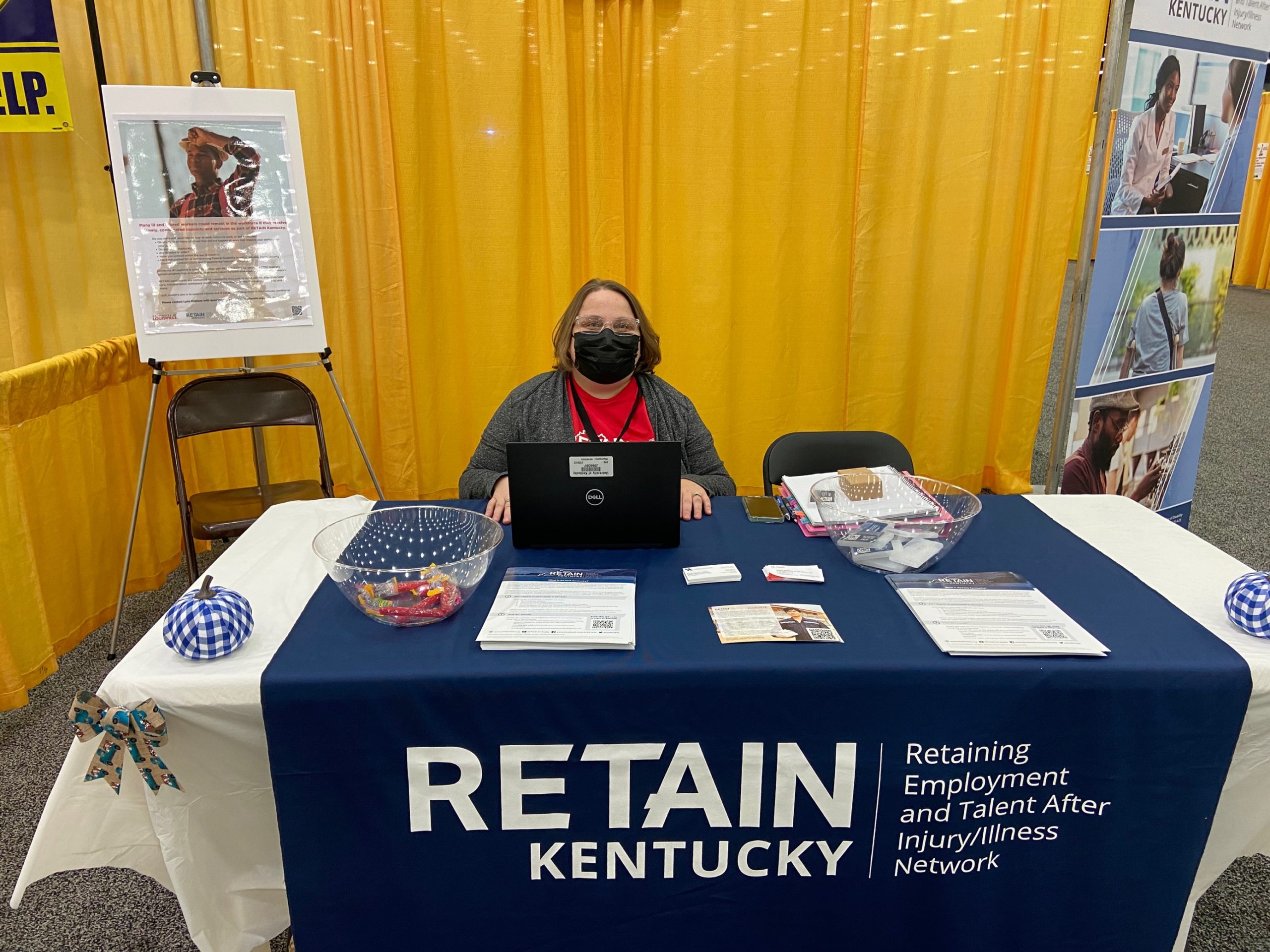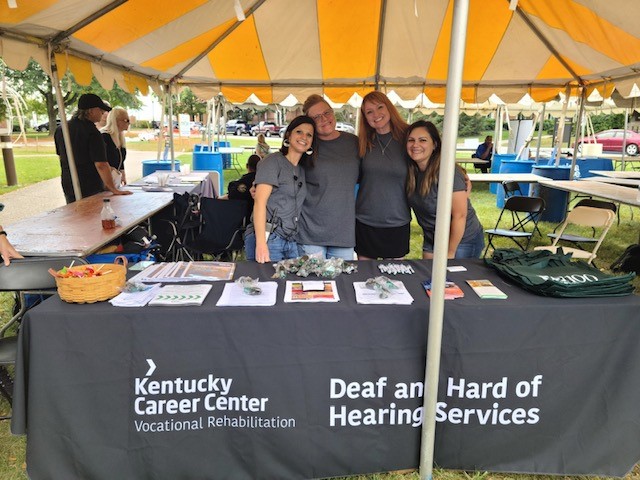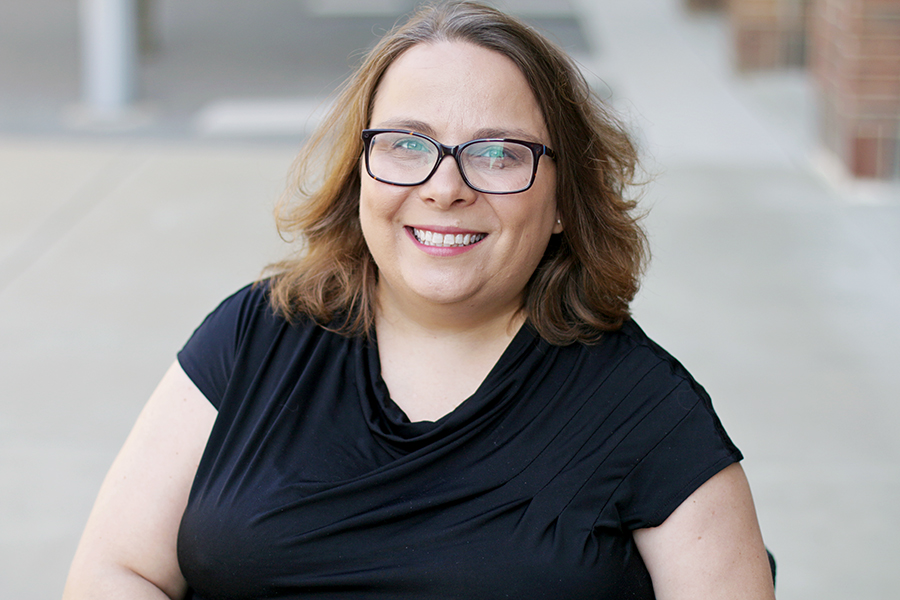Kentuckians will soon have access to an adaptive mountain biking trail, thanks in part to an internal grant funded by the UK Human Development Institute. The trail, to be built by the Kentucky Mountain Biking Association, will be designed with the interest of people with disabilities at the forefront, prioritizing input and feedback from trail users with disabilities.
The $10,000 grant, known as the Fund for Excellence award, was awarded to John C. Hill and Laura Butler. The Fund for Excellence Award is issued to Human Development Institute staff members for innovative projects, services and products that address the needs of individuals with disabilities and their families.
Hill, principal investigator of the grant, is a survey project coordinator at HDI, an adjunct professor in the College of Education and the College of Information and Communication, and, fittingly, a mountain biker himself.
“When I look through things, I try to find ways to connect my personal life to my research,” Hill said.
The grant proposal written by Hill and Butler for their project, called the Bluegrass Mountain Biking Accessibility Initiative, addresses indicated barriers to physical activity and equitable access to outdoor recreation. Butler, disability program administrator at HDI and project director of the mountain biking initiative, works closely alongside Hill to collect and analyze Kentucky National Core Indicators survey results to assess the services and supports offered to people with disabilities.
The location of the new trail, which will be in central Kentucky, is still being determined. It may be its own trail or a new branch or modifications to an already existing trail. However the logistics pan out, the scope of the project that is funded through the Fund for Excellence Award will conclude in the second half of 2023. In the meantime, Hill, Butler, and their partners on the project are working to install QR codes on trails throughout the bluegrass, in order to conduct surveys to better understand what limitations current trail users have and what sorts of trail features and/or adaptive technology would best support their needs.
In Hill’s experiences, he has seen that the culture within the bluegrass mountain biking community is to support new bikers and cheer them on, even when that means slowing down the pace a bit.
“The mountain bike community is really special to me because [there are so many] extremely intelligent, nice people, and they care about others. They just want to get people involved,” Hill said.
Hill and Butler are relying on the expertise of the Kentucky Mountain Biking Association to physically build the trail. Together, and in collaboration with Midway University and the UK Community Innovation Lab, the team plans to consult with experts in trail building, universal design, and the community members who the trail is designed for throughout each step of the process.
For questions about the Bluegrass Mountain Biking Accessibility Initiative, please contact John C. Hill at johnchill@uky.edu.
